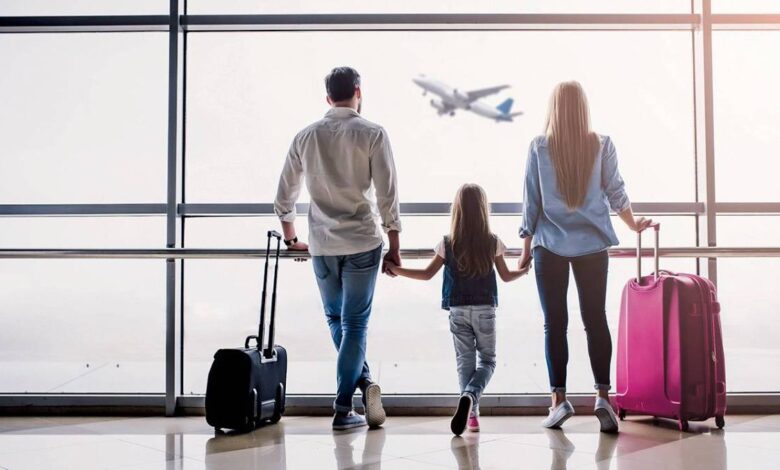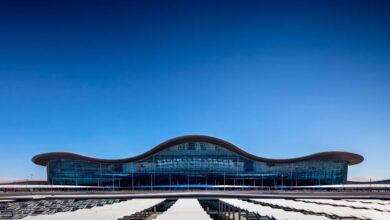Digital transformation enhances families and businessmen confidence in loyalty programs

The managers of travel offices and experts in the sector told Al -Khaleej: The loyalty programs offered by airlines are still used by a segment of travelers, despite the changes that have occurred in customer behavior in recent years.
They pointed out that some travelers have become inclined to offers and immediate rewards, instead of collecting points, while other groups, such as permanent travelers and businessmen, are still continuing to use them to benefit from their advantages.
The managers of travel offices and experts indicated that approximately 70% of permanent travelers interact with these programs, compared to about 30% of irregular travelers. Pointing out that the most demanding advantages include cabaret upgrades, airport halls, and free or reduced tickets.
They pointed out that the ease of use through smart applications and digital payment portfolios has become one of the stimulating factors to adopt these programs, in light of the direction of local airlines to adopt artificial intelligence technologies, with the aim of allocating offers and improving customer experience.
They said that the most prominent challenges faced by users are the conditions restricted to replace the points, and the expiration of their validity, as well as the fluctuation of their value without prior notice.
On the other hand, a report issued by the Research & Markets website, in February 2025, expected that the size of the loyalty programs in the UAE would reach about 817 million dollars, by 2029, driven by the accelerated digital transformation, and the integration of these programs with smart payment systems.
Work mechanism
Akram Mohamed, CEO of VIP Platinum Consagerj, said that loyalty programs offered by airlines aim to reward travelers and encourage them to repeat travel with the same company or its partners, where points are collected according to the degree of travel and distance, in addition to the possibility of winning them, via credit cards or hotel reservations and shopping with the program partners, then these points are replaced with benefits such as free tickets, Class promotions, or entry of VIP halls.
He added that interest in these programs is still high among permanent travelers, such as businessmen, as it is estimated that about 70% of them interact with them effectively, compared to 30% of irregular travelers who prefer instantial discounts.
And he showed that these programs allow travelers reduced or free tickets, promotions, and additional luggage, as well as flexibility of use with partners such as hotels and banks. As for the airlines, they benefit from them by enhancing customer loyalty, increasing their revenues through partnerships, and collecting customer data to improve offers.
Challenges and benefits
Muhammad pointed out that the most prominent challenges of loyalty programs, including the difficulty of replacing points due to restricted conditions, such as the availability of seats at specific times, the expiration of the points of points, and their value without notice.
He added that the most sought -after advantages are the cabinyships, the entry of airport halls, free or reduced tickets, as well as additional luggage. Pointing out that travel offices cooperate with airlines, by linking customer reservations to their membership numbers, activating additional points offers for them, and taking advantage of the program partnerships to book hotels and rent cars that give points.
Travelers behavior
Haitham Al -Hajj Ali, Chairman of the Dubai Link Tourism Group, said that loyalty programs still maintain their importance, despite the change of travelers’ behavior. While immediate offers have become more attractive to recreational and irregular travelers, the category of businessmen and permanent travelers remains adhering to the benefits of long -term loyalty.
He added: «GTE platform data for reservations shows that the age group between 30 and 50 years, especially from European, Asian, and Gulf nationalities, is the most interactive with loyalty programs, due to their association with professional and family travel and their awareness of the value of points. Business travel is the most beneficial from these programs, followed by family travel and then entertainment. Upgrading to higher degrees is the most attractive feature and asking them in loyalty programs. ”
He pointed out that there are a number of challenges facing customers, most notably the complexity of the conditions for using these points, the end of their validity before their exploitation, the limited promotion seats, in addition to the lack of diversity of replacement options.
The most prominent incentives
The prevailing digital travel expert, Hatayat, said: The promotion of all kinds is one of the most prominent incentives that drive travelers to engage in loyalty programs. Adding that the travelers of the work interact with them regularly in search of speed and credibility, while the entertainment traveler deals with it, with the aim of saving and gathering miles to take place later experiences.
He continued: «Ease of use through applications and digital payment portfolios has become a stimulating factory, especially with the digital acceleration in the travel sector, airlines in the Emirates have started to use artificial intelligence and data analyzes to allocate offers, which enhances the effectiveness of programs and the confidence of travelers in them. Nevertheless, there is a constant need to develop loyalty programs, to be more flexible and varied, by linking points to new partners such as hotels and shopping centers.
He explained that the Emirates and Qatar passengers are a good interaction with these programs in the region, and that travelers from East Asia, such as India and Singapore, excel in terms of discipline and accuracy in the use of points.



